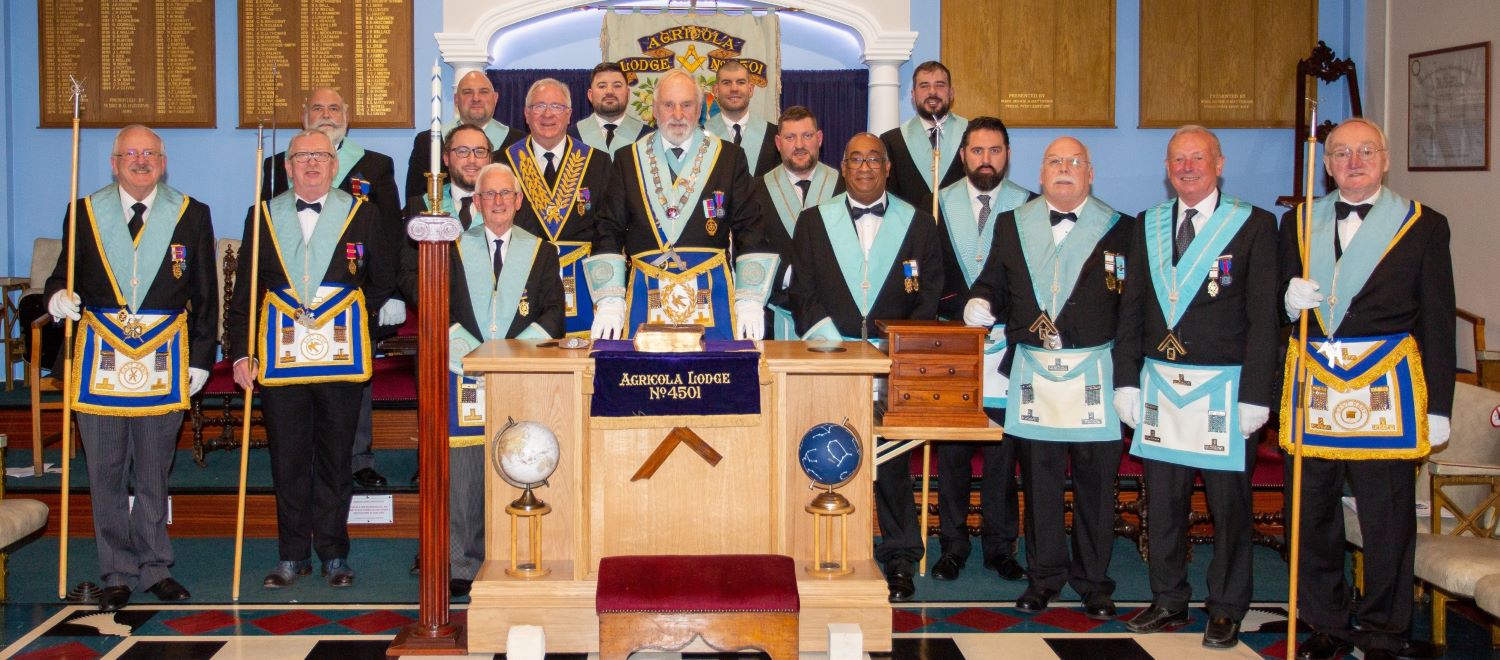 The questions of when, how, why and where Freemasonry originated are still the subject of intense speculation. The consensus amongst most Masonic scholars is that it descends directly or indirectly from the organisation of operative stonemasons who built the great cathedrals and castles of the middle ages.
The questions of when, how, why and where Freemasonry originated are still the subject of intense speculation. The consensus amongst most Masonic scholars is that it descends directly or indirectly from the organisation of operative stonemasons who built the great cathedrals and castles of the middle ages.
July 31, 1599: The Oldest Masonic Lodge Minutes in existence are from the Lodge of Edinburgh No. 1 which has records to prove its long-time existence as the world’s oldest Masonic Lodge.
1646: Elias Ashmole (The founder of the Ashmolean Museum at the University of Oxford) recorded his initiation into Freemasonry with these words… “October 16, 4.30pm – I was made a freemason at Warrington in Lancashire with Colonel Henry Mainwaring (a Roundhead parliamentarian friend related to his father-in-law) of Karincham in Cheshire. The names of those that were then at the Lodge, Mr Richard Penket Worden, Mr James Collier, Mr Richard Sankey, Henry Littler, John Ellam, Richard Ellam and Hugh Brewer.” This is the first evidence of the initiation of an English speculative mason – notwithstanding the fact that those present and listed would have certainly been initiated at an earlier date.
24 June 1717: Four London Lodges, which had existed for some time, came together at the Goose and Gridiron Tavern in St Paul’s Churchyard in London, declared themselves a Grand Lodge and elected Anthony Sayer as their Grand Master. This was the first Grand Lodge in the world.
1723: By this time the new Grand Lodge had published its first rule book – The Book of Constitutions of Masonry – and was meeting quarterly and recording its meetings. It had extended its authority outside London.
1725: The Grand Lodge of Ireland was established.
1736: The Grand Lodge of Scotland was established. The three Home Grand Lodges began to take Freemasonry overseas and the development of Freemasonry abroad mirrors the 18th and 19th century development of the British Empire.
1751: A rival Grand Lodge appeared in London. Its original members were Irish Masons who claimed that the original Grand Lodge had made innovations. They dubbed the first Grand Lodge the Moderns and called themselves the Antients. The two existed side by side – both at home and abroad – for nearly 63 years, neither recognising each other as regular.
1813: After four years of negotiation, the two Grand Lodges in England united on 27 December 1813 to form the United Grand Lodge of England. This union led to a great deal of standardisation of ritual, procedures and regalia.
1814: Some 647 Lodges were in existence. The 19th century saw a great expansion of Freemasonry – both at home and abroad.
1900: 2,800 Lodges had been established despite losses when independent Grand Lodges were formed in Canada and Australia in the later part of the century.
1914 -1945: The two World Wars both had a great effect on English Freemasonry. In the three years after the First World War over 350 new Lodges were set up, and in the three years after the Second World War nearly 600 new Lodges came into being. In many cases the founders were servicemen who wanted to continue the camaraderie they had built up during their war service, and were looking for a calm centre in a greatly changed and changing world.
1967: On 14 June 1967 the 250th anniversary of Grand Lodge was celebrated at the Royal Albert Hall. Centrepiece of the celebrations was the installation as Grand Master of HRH The Duke of Kent, who still holds that office today.
1992: On 10 June 1992 over 12,500 Freemasons and guests gathered at Earls Court in West London to celebrate the 275th anniversary of Grand Lodge. For the first time press and television were present at a meeting of Grand Lodge and the event featured on television newscasts around the world.
2017: Freemasons around the world are currently celebrating the 300th Anniversary of the United Grand Lodge of England..
Some famous Freemasons…
- At least five Kings of England (more recently Edward VII, Edward VIII and George VI),
- The present Duke of Kent,
- Statesmen Winston Churchill and Lord Kitchener,
- Military genius the Duke of Wellington,
- Authors Rudyard Kipling and Arthur Conan Doyle,
- World Cup winning England manager, Alf Ramsey,
- The explorer Ernest Shackleton,
- The scientist who discovered penicillin, Alexander Fleming ,
- Painter William Hogarth,
- 18th Century Poet Alexander Pope
- Flamboyant playwright Oscar Wilde.
- Famous actors David Garrick, Richard Todd and Peter Sellers,
- Musicians: Arthur Sullivan of Gilbert and Sullivan fame and Nat King Cole.
